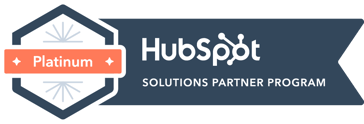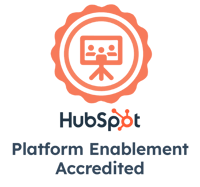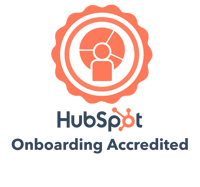Being able to catalogue, organize, and track your contacts has an immensely powerful impact on your business. One of the areas that benefits tremendously from this action is your marketing team.
If you're not currently using a CRM, here are some compelling reasons beyond just contact management to consider one for your business.
What is a CRM?
"CRM" refers to "customer relationship management" - and in the digital sphere, this means software that tracks interactions with prospects and customers. CRMs store contact information including name, email, phone and any other identifying information.
Companies can also assign certain contacts to certain customer service representatives or group multiple contacts under one account.
A sophisticated CRM like HubSpot can even log employee interactions with contacts, including emails, phone calls, voicemails and in-person meetings.
How a CRM Helps Marketing
1. Learn more about your target audience
One of the ways a CRM can really help with your marketing efforts is by giving you the tools to learn more about your target audience. Through a CRM, you can uncover data about how your customers interact with you.
With this data centralized, you can examine it to uncover patterns and trends. You can see what demographics most of your customers fall under, how they like to communicate (phone call/email/text), and the most popular products/services among your audience.
You can then use this data to create a clear picture of who your target audience is. You can also glean insights about how not to target - if you have past customers in your CRM that weren't a good fit, you can pull their data as well to ensure that you're truly targeting the audience you want.
→Read Now: What is a Buyer Persona? (And How Do I Make One?)
2. Segment and target
A CRM will give you a broad picture of your audience, but it can also be used to narrow in on specific contacts. Even if you use another system for marketing, you can still use your CRM to segment your audience.
Segmentation is the process of dividing up your contacts into smaller lists based on shared attributes. Examples include:
- Segmenting by demographical information (location, age, job title, etc.)
- Segmenting by industry
- Segmenting by product/service
- Segmenting by last contact date
- Segmenting by lead status
You can segment by any metric that makes sense for your business. From here, you can market to these specific groups.
→Read Now: The Non-Marketer's Guide to Segmentation & Targeting
3. Deliver personalized content
Since a CRM provides data on your audience, you can use this information to create personalized content based on your audiences.
For example - maybe you notice that a lot of your customers in a specific industry tend to be interested in the same product/service. You might then segment a list of leads in that industry that haven't yet converted into customers and send them an email about that product/service.
By creating personalized content, your marketing can truly speak to your specific audience and make them more likely to convert into customers.
→Read Now: What is Inbound Marketing? [Free eBook]
4. Analyze data
You can use your CRM to provide some insight at how your marketing is performing. Your CRM will show you how many new leads are coming in each month and from what source. This can give you a clue as to what marketing channels are successful: are you pulling in a majority of leads through online ads? Are they coming from Google searches? Social media?
Depending on the CRM, this information may be captured automatically. If not, you can collect it by having your sales team ask each customer how they heard about you.
→Read Now: What is HubSpot and How Can It Help Grow My Business?
A good CRM allows you to learn more about your ideal customer, segment your list, provide customized content, and analyze data. All of these combine to help aid your marketing team to better target your audience and get insight to what is and isn't working.
Free Guide: What is HubSpot and How Can it Grow Your Business?
Discover how to grow your business with an all-in-one sales, marketing, website, customer service, and CRM powerhouse. Explore the power of HubSpot and its core Hubs to decide if it's right for your business and growth goals.
BizzyWeb is a Minneapolis-based digital marketing and web design agency that helps companies get the high-quality leads they need to grow and thrive. Our tactics include inbound marketing, SEO, advertising, web design, content creation and sales automation. We are an accredited HubSpot Platinum Partner and we offer full-service HubSpot onboarding, enablement and strategy for new and current users.






